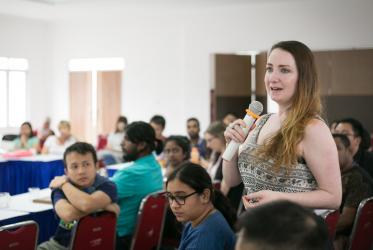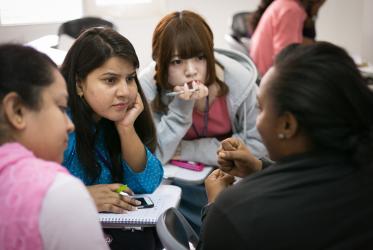Displaying 161 - 180 of 274
30 August 2017
Women’s mentoring focus of Thailand gathering
23 April 2017
“Overcoming economic injustice” vision of WCC’s Athena Peralta
23 February 2017
During Lent, a “carbon fast” can honour God’s creation
09 February 2017
New videos help congregations hasten HIV response
20 October 2016
Religion: Way of war or path to peace?
30 June 2016











